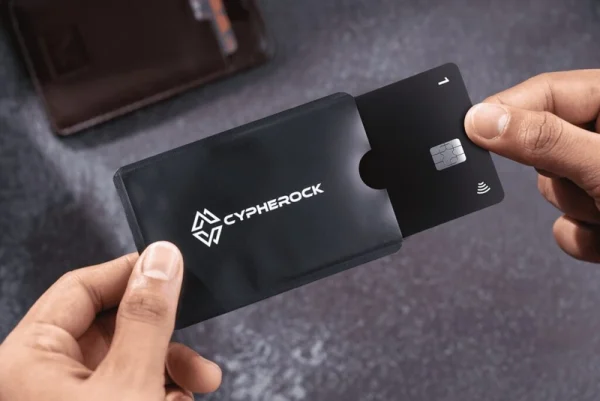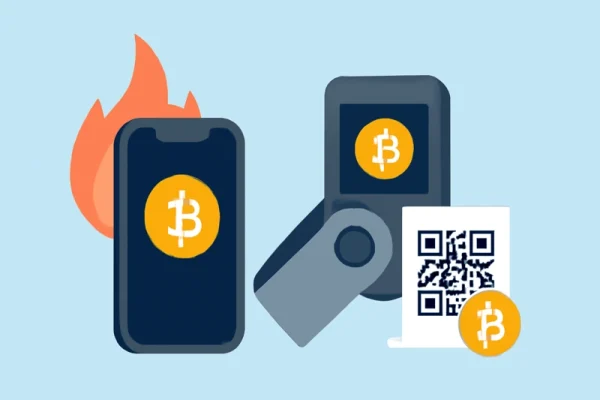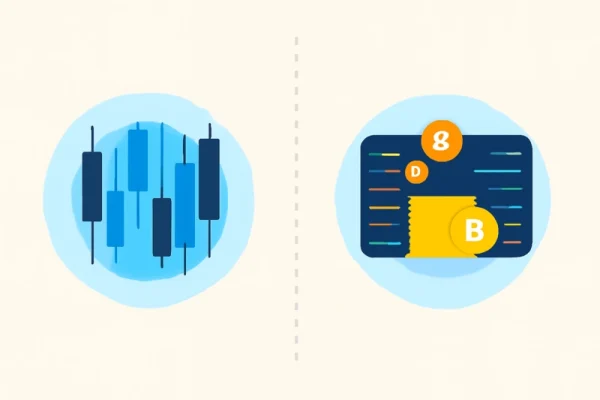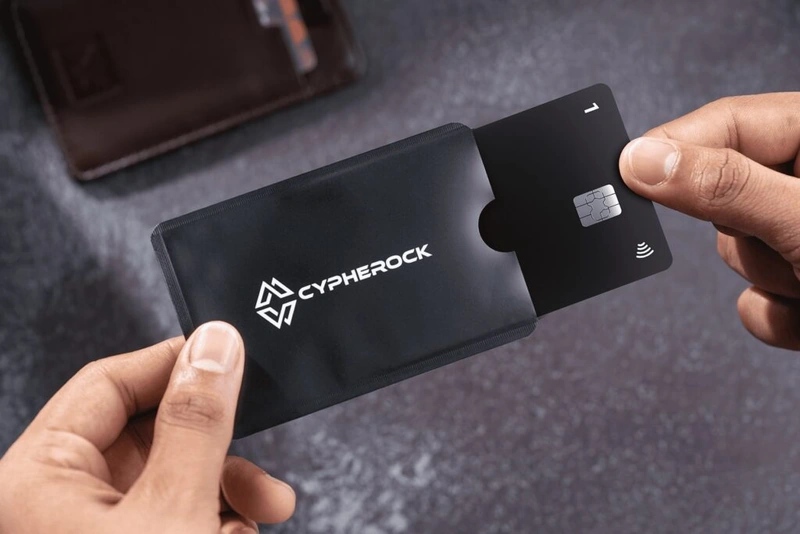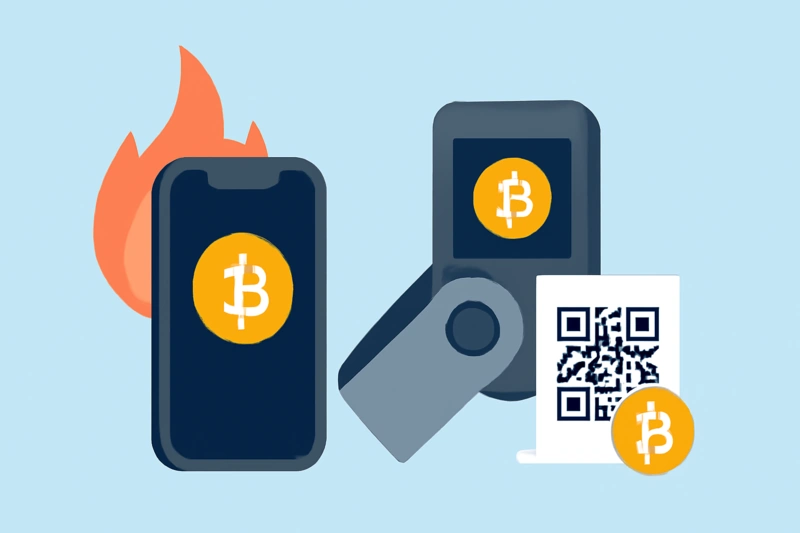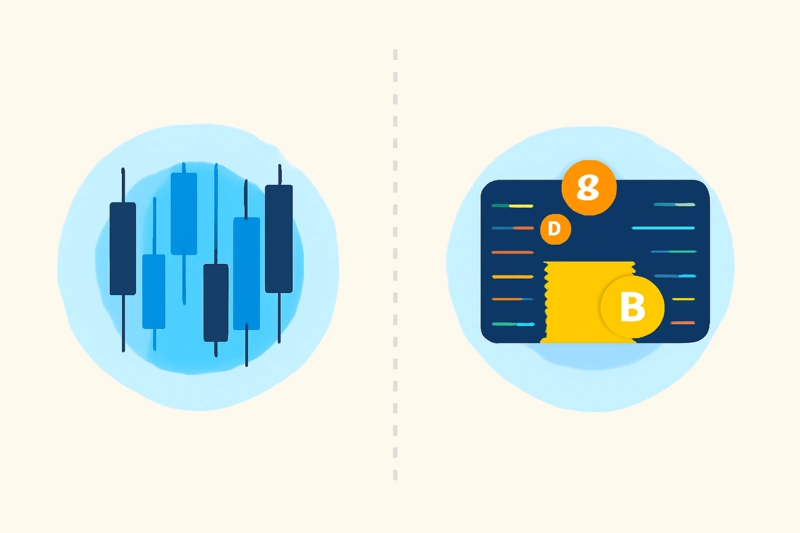What is a Crypto Wallet: A Beginner’s Guide
Curious about crypto wallets? We'll start with the basics: what is a crypto wallet, how crypto wallets work, and more. Whether you're just getting into the crypto world or looking to boost your knowledge, we'll demystify the concept and show you why having a crypto wallet is necessary for anyone dealing with digital currencies.
Table of content
Key Highlights
- Crypto wallets secure private keys, not the actual assets.
- Public keys act as digital addresses, guiding transactions to the user's crypto holdings.
- Private keys, functioning as secret passphrases, grant exclusive control over digital assets.
- Crypto wallets fortify security against cyber threats, which is crucial in decentralized finance.
- Diverse types like hardware, software, web-based, and paper wallets cater to various preferences.
- The Cold vs. Hot Wallet comparison emphasizes security for long-term storage or everyday transactions.
What is a Crypto Wallet?
In simple words, a crypto wallet is like a digital pocket for your cryptocurrencies. Think of a crypto wallet as a high-tech treasure chest in the cryptocurrency world. It keeps your digital assets safe and has two keys – one everyone can see (public key) and one only you should know (private key).
- Public Key – Your Crypto Address:
Imagine your public key as your digital P.O. Box. It's like sharing your mailing address with friends who want to send you letters or packages. Just as your P.O. Box is publicly known, your public key is shared openly in the crypto world. When someone wants to send you cryptocurrencies, they use your public key as the delivery address. It's the visible doorway on the blockchain, a digital beacon that guides transactions to your crypto haven.
- Private Key – Your Secret Passphrase:
Think of your private key as the secret combination to a high-tech safe. This is your code, known only to you, unlocking the door to your digital vault. It's comparable to your PIN or password to access your bank account or enter a secured room. Safeguarding the private key is paramount, just as protecting your PIN is crucial for ensuring your physical assets. With your private key, you're the sole maestro orchestrating the movements of your digital fortune on the blockchain stage.
Note! In blockchain technology, public and private keys collaborate effortlessly to facilitate cryptocurrency transfers. The public key serves as the destination for transactions, while the private key acts as the authentication mechanism, allowing only the authorized user to control and manage their digital holdings. Together, these keys form the core of crypto wallets, transforming them into essential tools within the symphony of decentralized finance.
Why Do You Need a Crypto Wallet
Crypto wallets are crucial tools, primarily driven by the paramount need for security. Here's a breakdown of why a crypto wallet is indispensable:
Security Fortification
- Cryptocurrency wallets provide a secure vault for storing private keys, ensuring that only the rightful owner can access and manage their digital assets.
- With the rising prevalence of cyber threats and hacking attempts, a dedicated crypto wallet is a robust defence mechanism, safeguarding against unauthorized access and potential breaches.
Control and Autonomy
- Owning a crypto wallet grants users complete control over their funds, eliminating reliance on third-party intermediaries like banks. This autonomy is fundamental to the decentralized nature of cryptocurrencies.
Facilitation of Transactions
- Crypto wallets streamline the process of sending and receiving digital currencies. Users can effortlessly initiate transactions, whether for personal use or engaging in the broader world of decentralized finance.
Diverse Asset Management
- Many crypto wallets support a variety of digital assets, allowing users to manage different cryptocurrencies within a single interface. This adaptability proves especially advantageous for individuals managing varied crypto portfolios.
Global Accessibility
- Crypto wallets enable users to access their digital assets anywhere in the world, transcending geographical boundaries. This global accessibility is a significant advantage for individuals engaging in international transactions or travel.
FAQs About What is a Crypto Wallet (Frequently Asked Questions)
What is a crypto wallet?
What are public and private keys?
How many types of crypto wallets are there?
What is the difference between Cold and Hot Wallets?
How do crypto wallets work?
Can I use multiple types of wallets?
Different Types of Crypto Wallets
Each type of crypto wallet has advantages and considerations. The choice depends on factors such as the user's security preferences, frequency of transactions, and the amount of cryptocurrency being stored. There are four main types of crypto wallets: Hardware wallets, Software wallets, Web-based wallets, and Paper wallets.
Let's talk about them in more detail.
1. What is Hardware Wallet:
A hardware wallet is a physical device that stores private keys offline, adding an extra layer of security by keeping the keys away from internet-connected devices.
Key Features:
- Offers enhanced security against online threats like hacking and malware.
- It is ideal for long-term storage of significant amounts of cryptocurrency.
- Requires a physical connection to authorize transactions, minimizing the risk of remote attacks.
2. What is Software Wallet:
Software or digital wallets are applications or programs that users can install on their computers or mobile devices to manage and access their cryptocurrency holdings.
Key Features:
- Provides convenient access to funds for daily transactions.
- Available in various forms such as desktop, mobile, or online applications.
- Different software wallets cater to different needs, balancing security and accessibility.
3. What is a Web-based Wallet
Web-based wallets operate on the cloud and can be accessed through a web browser. Users entrust their private keys to third-party service providers, making them convenient for quick access but requiring trust in the hosting platform's security measures.
Key Features
- Accessibility from any device with an internet connection.
- Suitable for users who prioritize convenience and frequent transactions.
- It is essential to choose reputable platforms with robust security protocols.
4. What is a Paper Wallet
A paper wallet generates and prints public and private keys onto a physical document. This offline method is highly secure, as it avoids exposure to online threats.
Key Features
- Physical form provides immunity to online hacking attempts.
- Often used for long-term storage or as a cold storage option.
- The physical document requires careful handling and protection to prevent loss or damage.
| Wallet Type | Description | Key Features |
| Hardware Wallet | Physical device for offline key storage. | – Ideal for long-term storage. – Enhanced security. |
| Software Wallet | Digital app for daily transactions. | – Convenient. – Balances security and accessibility. |
| Web-based Wallet | Cloud-based, accessible from any device. | – Convenient for frequent transactions. – Trust in platform security. |
| Paper Wallet | Physical document with printed keys for offline security. | – Immune to online threats. – Used for long-term or cold storage. |
Cold Wallet vs Hot Wallet
All the cryptocurrency wallets listed above are divided into two main groups – hot wallets and cold wallets.
A cold wallet is an offline storage solution, keeping private keys away from internet connectivity to minimize exposure to potential online threats. Typically embodied by hardware or paper wallets, cold wallets are favored for long-term storage due to their heightened security features.
On the other hand, hot wallets, encompassing software and web-based options, remain connected to the internet for convenient and quick access, making them suitable for everyday transactions.
| Aspect | Cold Wallet | Hot Wallet |
| Description | Offline storage solution | Connected to the internet for quick access |
| Examples | Hardware wallets, paper wallets | Software wallets, web-based wallets |
| Security Focus | Minimizes exposure to online threats | More susceptible to online threats compared to cold wallets |
| Use Case | Ideal for long-term storage | Suitable for everyday transactions and quick access |
| Accessibility | Requires a physical connection for transactions | Provides convenient and immediate access to funds |
Choosing the Right Wallet
- Security Priorities: Cold wallets are recommended for users prioritizing maximum security, especially for storing substantial amounts over a more extended period.
- Convenience: Hot wallets suit users who prioritize convenience and frequently engage in transactions.
- Hybrid Approach: Some users opt for a combination of both, allocating assets based on the level of security required for various purposes.
How Do Crypto Wallets Work?
Digital crypto wallets store essential private keys for managing cryptocurrency, but the assets themselves reside in the blockchain. Wallets facilitate transactions by interacting with the decentralized ledger, ensuring secure record-keeping. In essence, wallets protect keys, while blockchain holds the actual cryptocurrency assets.
Mainly, all decentralized crypto wallets and exchanges do not require KYC. For this reason they are often called anonymous crypto wallets.

Now, let's demystify the process further by breaking down the basic steps to utilize your digital wallet effectively:
- Select Cryptocurrency: Choose the cryptocurrency you wish to purchase or manage within your wallet.
- Choose a Trustworthy Exchange: Opt for a reliable cryptocurrency exchange that supports the chosen digital currency.
- Create an Account on a Crypto Exchange: Sign up on a reputable cryptocurrency exchange platform. Complete the necessary identity verification procedures as required by the exchange.
- Purchase Crypto Assets. Deposit funds into your exchange account and use them to buy the desired cryptocurrency. Follow the exchange's interface to execute your purchase.
- Transfer to External Wallet: Once the purchase is complete, initiate a withdrawal from the exchange to your external crypto wallet. Provide the wallet address and confirm the transfer. Ensure your wallet is compatible with the cryptocurrency you're transferring. The assets will now be securely stored in your wallet, offering enhanced control and security.
Understanding these steps empowers users to navigate the intricacies of crypto transactions securely and efficiently.
Conclusion
To sum up, crypto wallets are vital in securing and managing digital assets in the cryptocurrency domain. The interaction of public and private keys underscores the user's responsibility to protect their digital wealth.
The array of wallet types accommodates diverse security and accessibility preferences, with the cold wallet vs. hot wallet contrast emphasizing tailored use cases. Recognizing that crypto wallets safeguard private keys, not the assets, clarifying their function.
Crypto wallets empower users to confidently navigate decentralized finance, allowing for efficient and secure management of digital assets in this ever-evolving landscape.
